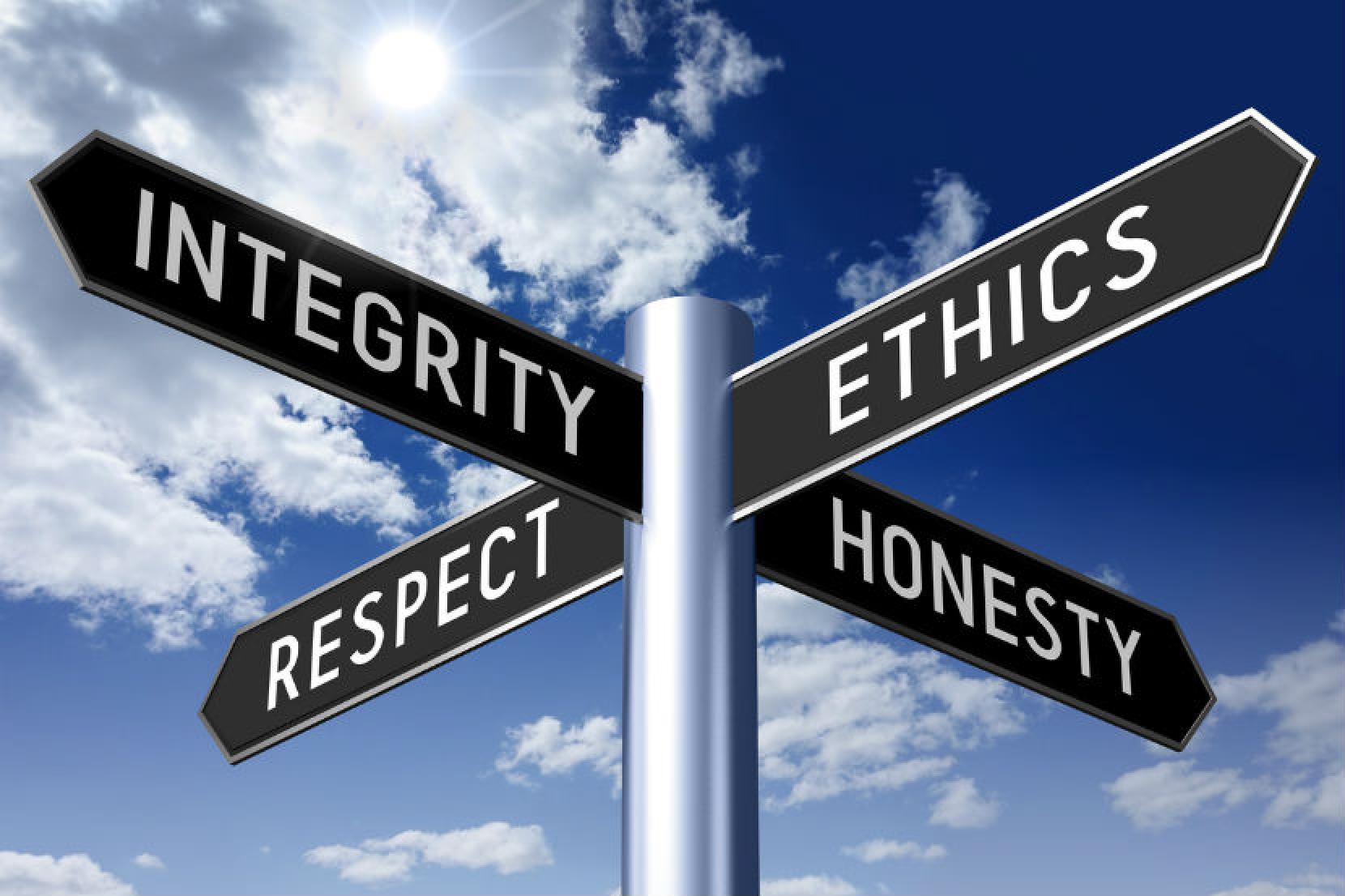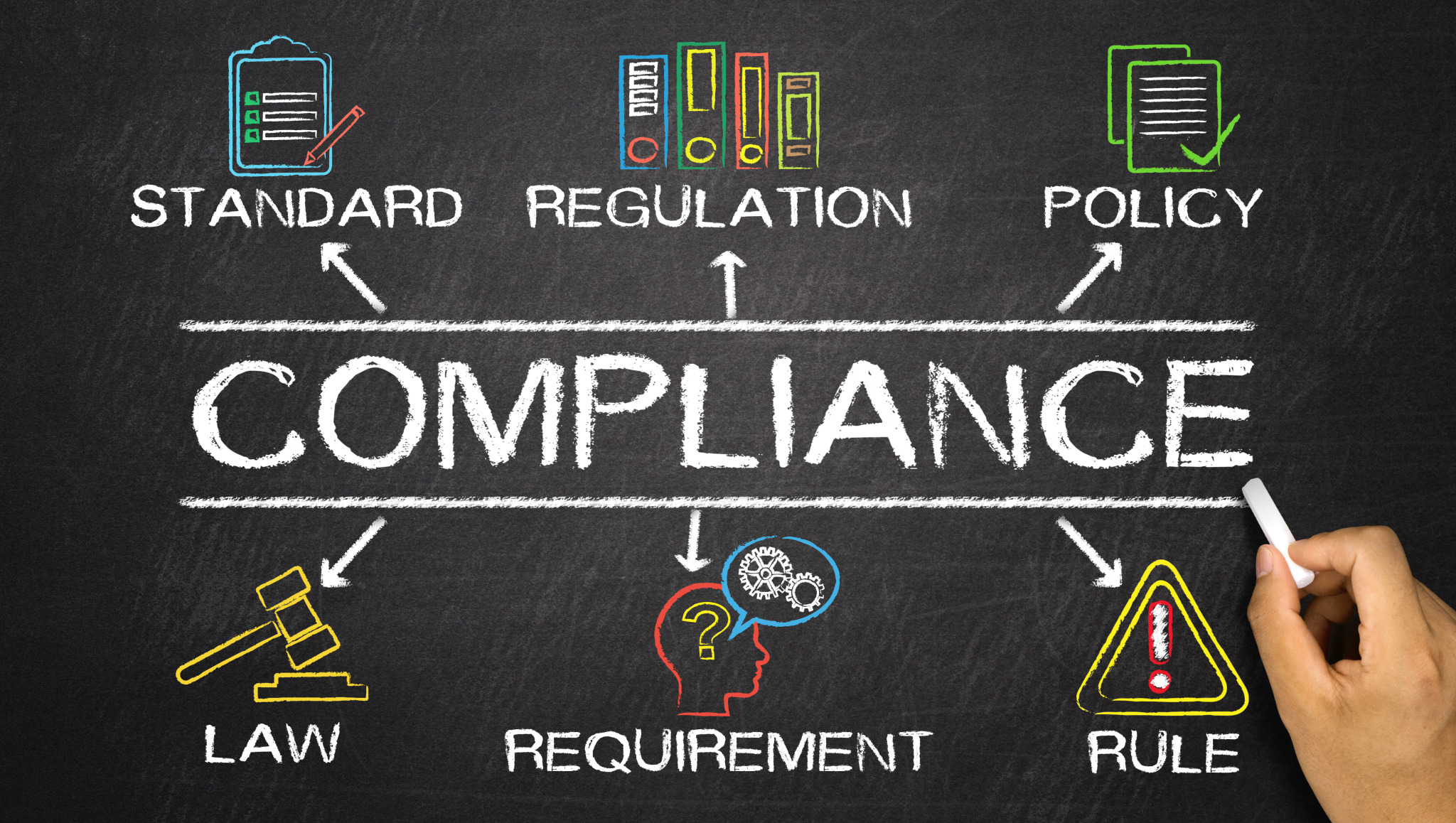Compliance: Ensuring Ethical And Legal Integrity In Business. Compliance ensures businesses operate within a framework of laws, regulations, and ethical standards, fostering a culture of integrity and minimizing legal exposure.
Editor's Note: Compliance: Ensuring Ethical And Legal Integrity In Business published on March 8, 2023. Understanding compliance is crucial for businesses to maintain ethical operations and avoid legal repercussions.
We've analyzed, researched, and compiled this guide to help you grasp the significance and benefits of compliance in business.
Key Differences:
| Criterion | Benefits of Compliance | Consequences of Non-Compliance |
|---|---|---|
| Legal Protection | Mitigates legal risks and penalties | Legal liabilities, including fines and imprisonment |
| Ethical Conduct | Promotes ethical behavior and transparency | Damage to reputation and loss of trust |
| Competitive Advantage | Enhances reputation and attracts ethical investors | Loss of customers, partners, and investors |
Main Article Topics:
FAQs on Compliance
Ensuring compliance is fundamental to upholding ethical and legal integrity in business. This section delves into frequently asked questions to clarify key aspects of compliance and its significance in the business landscape.

Embedding AI Ethics: Making AI Safer for Humanity - Charles River Analytics - Source cra.com
Question 1: What constitutes compliance in business?
Answer: Compliance refers to adherence to laws, regulations, and ethical standards governing business practices. It encompasses a wide range of areas, including financial reporting, anti-corruption, data privacy, and environmental protection.
Question 2: Why is compliance crucial for businesses?
Answer: Compliance is essential for maintaining the integrity and reputation of a business. It helps mitigate legal risks, avoid financial penalties, and foster trust with stakeholders. It also enables businesses to operate ethically and responsibly, contributing to a positive social impact.
Question 3: How can businesses implement a robust compliance program?
Answer: Implementing a comprehensive compliance program involves several key steps. Businesses should establish clear policies and procedures, conduct regular risk assessments, provide comprehensive training to employees, and establish effective monitoring and reporting mechanisms.
Question 4: What are the benefits of effective compliance?
Answer: Effective compliance brings numerous benefits, including enhanced legal protection, improved financial performance, increased stakeholder confidence, and reduced operational risks. It fosters a culture of ethical decision-making and promotes sustainability in business operations.
Question 5: What are the consequences of non-compliance?
Answer: Failure to comply with laws and regulations can have severe consequences for businesses. These include hefty fines, legal penalties, reputational damage, loss of licenses, and even criminal charges. Non-compliance can also undermine public trust and harm the business's ability to operate successfully.
Question 6: How can businesses promote a compliance-focused culture?
Answer: Establishing a strong compliance culture requires leadership commitment, effective communication, and ongoing training. Leaders should set ethical expectations, provide clear guidance, and foster a work environment that encourages adherence to compliance principles.
By addressing these common questions, businesses can gain a deeper understanding of compliance, its importance, and its role in ensuring ethical and legal integrity. Effective compliance programs protect businesses from risks, enhance their reputation, and create a foundation for sustainable and responsible operations.
Explore other sections to delve further into the significance of compliance and its implications for various business sectors.
Tips
Rigorous adherence to compliance standards is indispensable for maintaining ethical and legal integrity in business operations. Successful implementation necessitates a comprehensive approach that encompasses various facets, including corporate policies, employee training, and ethical decision-making. The following tips provide a concise guide to foster a culture of compliance within any organization:

ETHICAL ASPECTS IN PERSONAL SELLING - Source commercestudyguide.com
Tip 1: Establish Clear Policies and Procedures
Well-defined policies and procedures serve as the cornerstone of an effective compliance program.Compliance: Ensuring Ethical And Legal Integrity In Business. They outline the organization's expectations, responsibilities, and consequences for non-compliance. Clear guidelines empower employees to make informed decisions and mitigate the risk of ethical and legal violations.
Tip 2: Provide Comprehensive Training
Regular training sessions are essential for ensuring that employees are fully aware of their compliance obligations. Training should cover a wide range of topics, including anti-corruption, anti-money laundering, and data protection. By equipping employees with the necessary knowledge and skills, organizations can minimize the likelihood of unintentional compliance breaches.
Tip 3: Foster a Culture of Ethical Decision-Making
Beyond formal policies and training, fostering a culture of ethical decision-making is crucial. This involves creating an environment where employees feel comfortable raising concerns, questioning unethical practices, and reporting potential violations. By encouraging open and honest communication, organizations can proactively identify and address compliance risks.
Tip 4: Implement Robust Compliance Monitoring
Continuous monitoring is essential for ensuring ongoing compliance. Regular audits, risk assessments, and incident reporting mechanisms enable organizations to identify potential compliance gaps and take timely corrective actions. By adopting a proactive monitoring approach, businesses can prevent minor issues from escalating into major compliance breaches.
Tip 5: Seek External Guidance When Needed
External experts, such as lawyers or compliance consultants, can provide valuable guidance in complex compliance matters. They possess specialized knowledge and industry best practices that can assist organizations in navigating the ever-changing regulatory landscape. Seeking external support can enhance compliance efforts and minimize the risk of costly penalties.
Summary
By implementing these tips, organizations can establish a robust compliance program that safeguards their ethical and legal integrity. Compliance is not merely a regulatory requirement; it is an essential aspect of responsible business conduct that fosters trust, protects reputation, and ensures long-term sustainability.
Compliance: Ensuring Ethical And Legal Integrity In Business
Compliance in business is pivotal, ensuring adherence to legal and ethical standards. It encompasses various key aspects that underpin the integrity and sustainability of business operations.
- Accountability: Defining clear roles and responsibilities for compliance.
- Transparency: Open and accessible communication of compliance-related matters.
- Training: Providing comprehensive education and training on compliance requirements.
- Monitoring: Establishing mechanisms for ongoing monitoring and evaluation of compliance.
- Enforcement: Implementing appropriate measures to address compliance violations.
- Auditing: Conducting regular audits to assess compliance effectiveness.
![]()
Ensuring Ethical Practices in Home Office Compliance Management - Source pixelshr.co.uk
These aspects are interconnected. Accountability fosters a culture of responsibility, while transparency ensures that stakeholders are informed and engaged. Training empowers employees to make ethical decisions, and monitoring helps identify and address potential risks. Enforcement and auditing mechanisms deter violations and ensure accountability.
Compliance is not merely a matter of avoiding legal penalties but also essential for maintaining trust, fostering innovation, and driving long-term business success.
Compliance: Ensuring Ethical And Legal Integrity In Business
Compliance is the adherence of an organization to legal, ethical, and regulatory standards. It involves establishing and implementing policies and procedures that ensure ethical conduct, prevent legal violations, and mitigate risks. Compliance is a critical component of business operations as it protects the company's reputation, maintains stakeholder trust, and fosters a culture of integrity and accountability.

コンプライアンス違反の事例とは?本来の意味と遵守すべき理由もわかりやすく解説 | データで越境者に寄り添うメディア データのじかん - Source data.wingarc.com
Ethical compliance goes beyond legal compliance, as it encompasses actions that are not only legal but also morally correct. By adhering to ethical standards, businesses demonstrate a commitment to fairness, honesty, and transparency in their dealings with customers, employees, suppliers, and the community at large. Legal compliance, on the other hand, focuses on adherence to specific laws and regulations, ensuring that businesses operate within the boundaries set by the government.
Examples of ethical compliance include:
- Treating employees with respect and dignity
- Providing safe working conditions
- Protecting the environment
- Honoring commitments and contracts
Examples of legal compliance include:
- Paying taxes
- Complying with labor laws
- Adhering to environmental regulations
- Meeting industry standards
Compliance is not merely a regulatory requirement but a strategic imperative for businesses. By embracing compliance, companies can enhance their reputation, attract and retain customers, improve employee morale, and drive long-term success.
Conclusion
Compliance is the cornerstone of ethical and legal integrity in business. By establishing and maintaining a robust compliance program, organizations can protect their reputation, mitigate risks, and foster a culture of integrity and accountability. Ethical and legal compliance are not just abstract concepts but essential elements for sustainable business growth and success.
In today's competitive and highly regulated business environment, compliance is not an option but a necessity. Organizations that prioritize compliance will be well-positioned to navigate legal challenges, maintain stakeholder trust, and achieve long-term prosperity.